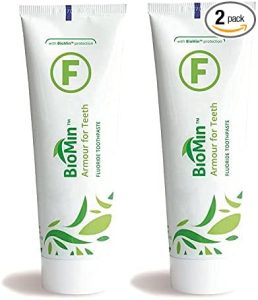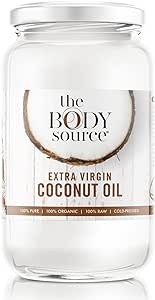The first sign that you have sensitive teeth is usually a short, sharp pain through your teeth when drinking a cold or hot drink. Tooth sensitivity can be really frustrating when it stops you from enjoying your favourite food and drinks. Fortunately, there are plenty of sensitive teeth treatments and home remedies for you to explore.
In this article, we will cover:
- The causes of sensitive teeth pain
- Different treatments available
- How you can prevent teeth sensitivity
- The best sensitive toothpaste and other products
- When to see a dentist
It’s always a worrying feeling to get sore teeth, but here we will hopefully give you all the information that you need so you know how to stop sensitive teeth from becoming a problem.
In This Article
What causes sensitive teeth?
There are a few possible causes of dentin hypersensitivity. Some are underlying issues that need to be addressed, but others can cause tooth sensitivity to just come and go, apparently at random. Sensitive gums and teeth are most common in people aged 20-40 years old and women are more likely to be affected than men.
Could any of the following sensitive teeth causes be the reason for your discomfort?
- Worn down enamel can cause very sensitive teeth. Enamel is the solid layer on the outside of your teeth that protects the dentine and tooth nerves underneath. When it starts to wear thin, you will find your tooth is sensitive to heat and cold and may even become see-through.
- Exposed tooth roots mean the part of your tooth with the least protective enamel is exposed, so there’s a greater chance of sensitivity.
- Cavities are another way your dentine and tooth nerves can become exposed, giving you sore teeth and sensitivity.
- A cracked or chipped tooth exposes the middle of your tooth and sometimes even nerves. We have a full guide on how to deal with cracked and chipped teeth for lots more information.
- A worn out or ill-fitting filling will expose an old cavity to the same problems of teeth sensitivity as before you got the filling.
- Gum disease exposes the teeth roots, which don’t have any protective enamel, thereby causing the teeth to become sensitive.
- Gum recession is a normal process – nearly 90% of people over 65 experience it – and it will increase the chances of having teeth sensitive to cold and heat.
Any of these factors can make the tooth sensitive to heat, cold, sugar and acid.
Your teeth are the hardest component of your body, even more so than your bones. However, even though they’re hard, they can still get problems like tooth sensitivity when the inner parts of the tooth become irritated.
Here’s the makeup of your teeth and how they get sensitive:
- Enamel, which is the hard outer layer
- Dentin, which is softer and surrounds your tooth root
- Tooth pulp, which is inside the dentin.
The tooth pulp is the sensitive tooth centre that is home to delicate blood vessels in nerves. These nerves are what get sensitivity, signalling to you that there is an issue with your teeth that a dentist needs to see.
Major reasons for tooth sensitivity can include tooth decay, too much acidity in a person’s diet, and gum recession.
Dr. Ania Mohelicki, Dr. Ania Dental Clinic
Treatments for sensitive teeth

Depending on the cause of your sensitive gums and teeth, there is a range of treatment options to try. In certain cases, home remedies or store-bought products can be a quick, easy, and effective way to stop sensitive teeth.
On the other hand, you may need dental treatment to fix the underlying cause before your tooth sensitivity develops into a full-blown toothache.
Here is a breakdown of some treatments that might be suitable for you:
Products for Sensitive Teeth BioMin F Toothpaste Toothpaste Best for: sensitive teeth and remineralisation 600ppm fluoride with unique slow release Minty taste Sensodyne Sensitive Repair & Protect Toothpaste Toothpaste Best for: sensitive teeth and remineralisation 1450ppm fluoride Minty taste Sensodyne Cool Mint Sensitive Care Mouthwash Mouthwash Best for sensitive teeth pain relief Ingredients: Fluoride 217 ppm, potassium nitrate, no alcohol Mild mint flavour FOREO ISSA Range Electric toothbrush Ultra soft gentle silicone bristles 8 vibration speeds Optional tongue cleaner attachment Built-in timer Oral-B Smart 5 Electric toothbrush 5 settings, including one for sensitive teeth and gums Sensitive brush head included Smart feature tracks whether you are brushing correctly Built-in timer



Mouthwash and toothpaste for sensitive teeth
Whether you want to treat sensitive front teeth or back teeth, you’ll find a range of products in your local supermarket or chemist that claim to cure sensitive teeth pain. These are usually in the form of toothpaste and mouthwash which contain extra fluoride. Here’s what to look for:
Toothpaste for sensitive teeth can be really effective as a long-term treatment; some people report improvement in sensitive gums and teeth within a few days. Make sure that you choose toothpaste with fluoride in it, as this is a key ingredient to strengthening tooth enamel.

One option for the best toothpaste for sensitive teeth in the UK is BioMin F toothpaste for sensitive teeth, which also helps with tooth remineralisation. Its patented formula releases low levels of fluoride slowly over 12 hours so your teeth get protection for much longer.
If you would rather avoid fluoride, BioMin C is a good fluoride-free sensitive teeth toothpaste.
Sensodyne Sensitive Toothpaste Daily is another good option which specialises in treating this problem.
Your dentist may prescribe you toothpaste with a higher fluoride concentration to relieve sore teeth or apply a concentrated fluoride varnish to protect and strengthen teeth. Read about some other ways to remineralize and strengthen enamel in our separate article.
Mouthwash can have a limited effect on pain from sensitivity in the long term. Specially formulated mouthwash for sensitive teeth like Listerine Advanced Defence Sensitive usually contains fluoride.
Toothbrushes for sensitive teeth
Sensitive toothbrushes can make a big difference when you have sensitive teeth. Look for one with a gentle ‘sensitive’ setting and special sensitive toothbrush heads.
The Oral-B Smart 5 electric toothbrush is a good example. It has five settings, including one for sensitive teeth and gums. It also comes with a sensitive brush head, and refills are available.
If you like the idea of a smart toothbrush, the technology is really at its best in the Oral-B iO9 and the Philips Sonicare DiamondClean Smart. Check out our guide to the best electric toothbrushes in the UK if you want to compare more options.
Are there any natural home remedies for sensitive teeth?

Yes, there are a few options you can try at home before getting a dentist appointment or spending money on any treatments or medicines for teeth sensitivity.
When your teeth are suddenly sensitive, you might look around the kitchen and think, “What do I have lying around that helps sensitive teeth?” Some of these options may work for you and others may not; they include:
- Oil pulling involves swishing oil, such as coconut oil, around your mouth. It’s been proven to reduce gum disease and so could help protect against sensitivity. Read more about how to oil pull if you want to try it.
- Salt water rinses can help to relieve sensitivity since salt has antiseptic properties and helps to reduce inflammation. Try adding a teaspoon of salt to a cup of hot water, stir until it dissolves, allow it to cool, then rinse around your mouth to get some quick sensitive teeth pain relief. As an added bonus, salt water has been noted to reduce plaque build-up.
- Honey and warm water rinses work similarly to salt water ones. Honey has antiseptic and anti-inflammatory qualities that can help with sensitive teeth pain.
- Clove oil gel is a well-known home remedy for toothache and scientists have confirmed it too. It might not stop sensitive teeth pain immediately, but the natural pain-killing action should kick in after around 5-10 minutes.
When to visit a dentist
The pain from sensitive teeth should only be fleeting, rather than long-lasting or constant. When you have teeth sensitive to sugar, acid, or extreme temperatures, the pain will only occur if your teeth come into contact with these things.
If the pain lasts for a long time after these triggers or isn’t associated with anything in particular that you eat or drink, there’s a chance that a more serious problem is causing your sensitive teeth pain. In this case, it’s best to have a dental checkup and mention your concerns.
Until your appointment, you can manage any pain by taking regular painkillers (if they are normally suitable for you). Check out our guide to toothache for more information about what might be causing the pain, what treatments are available, and how you can manage your pain at home.
Sensitivity can occur because of any number of factors. Routine brushing and flossing using the proper technique is one of the first steps to minimizing tooth sensitivity because it prevents decay and recession. You also need to make sure not to brush too hard against your tooth or your gums. This can lead to abrasion or gum recession, exposing the second layer of the tooth’s surface – dentin – and causing tooth sensitivity from nerve stimulation in the dentin layer. Using a soft bristle toothbrush also helps prevent and minimize tooth sensitivity.
If you are already experiencing sensitivity, using a special toothpaste, such as Sensodyne, or a prescription fluoride toothpaste can help minimise the discomfort. If tooth sensitivity lingers and/or occurs spontaneously, you may be experiencing a serious dental problem such as a cavity or a broken tooth. In these cases, it is best to see a dentist to evaluate your tooth and receive the appropriate treatment.
Dr Roselyn Oji, DDS
How to fix sensitive teeth for good
If you’re looking for a complete cure for sensitive teeth, your dentist will probably have the answer. Depending on what’s causing your teeth to be sensitive, they may recommend one of these treatments:
Treatment | How it helps sensitivity | Pros | Cons |
Fluoride application | Fluoride can help prevent enamel loss and tooth decay. Your dentist can ‘paint’ fluoride over the sensitive areas to get quicker results than other fluoride treatments like toothpaste. |
|
|
Prescription toothpaste | Your dentist might prescribe you Duraphat 5000 for sensitive teeth. It contains 5000ppm of fluoride, much higher than normal sensitive teeth toothpaste, so can help strengthen enamel against sensitivity. |
|
|
Bonding | Bonding resin for sensitive teeth is used by dentists to cover sensitive areas where enamel has been worn away. By covering the problem area there should be no more sensitivity. |
|
|
Filling | When teeth sensitivity is caused by a cavity, your dentist can place a filling to plug it up and stop it getting worse. |
|
|
Surgical gum graft | If the cause of your sensitive gums and teeth is receding gums, then your dentist may suggest surgery to remove gum tissue from somewhere else and graft it onto the receding area. |
|
|
Root canal treatment | In extreme cases of sensitivity, root canal surgery may be performed to remove exposed nerves. See our full guide to root canal treatment for more details. |
|
|
How can you prevent tooth sensitivity?

We’ve discussed how to help sensitive teeth, but did you know it’s also preventable? A major culprit for wearing away enamel and causing cavities is your diet. By using a straw for sugary or acidic drinks like fizzy drinks and fruit juice, you can minimise damage to your teeth. Take a metal straw wherever you go, so you’re always prepared.
Another big reason you might have dentin hypersensitivity is if you aren’t brushing correctly. You should use a soft or medium brush in a circular or up-and-down motion (not side-to-side), and avoid harsh or abrasive toothpaste.
In this video, dentist Brian Halvorsen recaps tooth sensitivity prevention, causes, and treatments:
Conclusion
The best thing for sensitive teeth is to follow correct brushing and general care routines. This includes brushing regularly and correctly, flossing, and using toothpaste for sensitive teeth (with at least 1350ppm of fluoride) every day. Most toothpaste brands in the UK meet this requirement.
Keep up with regular dentist visits so they can spot cavities or gum problems early on and offer you the most appropriate treatment.
FAQs
Why are my teeth so sensitive?
Sensitive gums and teeth are caused by the wearing away of the hard enamel coating of your teeth or by their roots getting uncovered. If the sensitivity feels extreme, consult your dentist. You might have a cavity, infection or gum disease. They will check your teeth and identify any underlying problems that need to be treated.
Any tooth decay or gum disease treatment you receive may also help reduce tooth sensitivity.
How do I get rid of sensitive teeth?
You can decrease how sensitive your teeth are by using toothpaste and mouthwashes designed to protect and strengthen your tooth enamel. For a complete cure, you will need to visit a dentist. They may provide bonding, a gum graft, a filling, or possibly root canal treatment.
Why do I have sensitive teeth in early pregnancy?

It is completely normal to have sensitive teeth in pregnancy. Because of changes in hormones, your teeth become more susceptible to plaque and this makes gum disease more likely, causing sensitivity. The good news is that dentistry is free on the NHS for pregnant women and those who have given birth in the last year, so visit a dentist to make sure your teeth stay healthy.
Will I get sensitive teeth from whitening products?
It is possible to develop sensitive teeth after whitening them, either with a home kit or at the dentist.
Why do I have a sensitive tooth after a filling?
A sensitive tooth after a filling isn’t uncommon and it should subside by itself after a few days. The most likely reason for the sensitivity is that a nerve ending in the tooth has been disturbed. After it has had time to heal, it should feel normal again. If you continue to experience sensitivity for more than two weeks after getting a filling, then contact your dentist.
Medical News Today: Why does my tooth still hurt after a filling? Consulted 11th January 2023.
Oral Health Foundation: Sensitive teeth. Consulted 11th January 2023.
NCBI: The etiology and prevalence of gingival recession. Consulted 11th January 2023.






